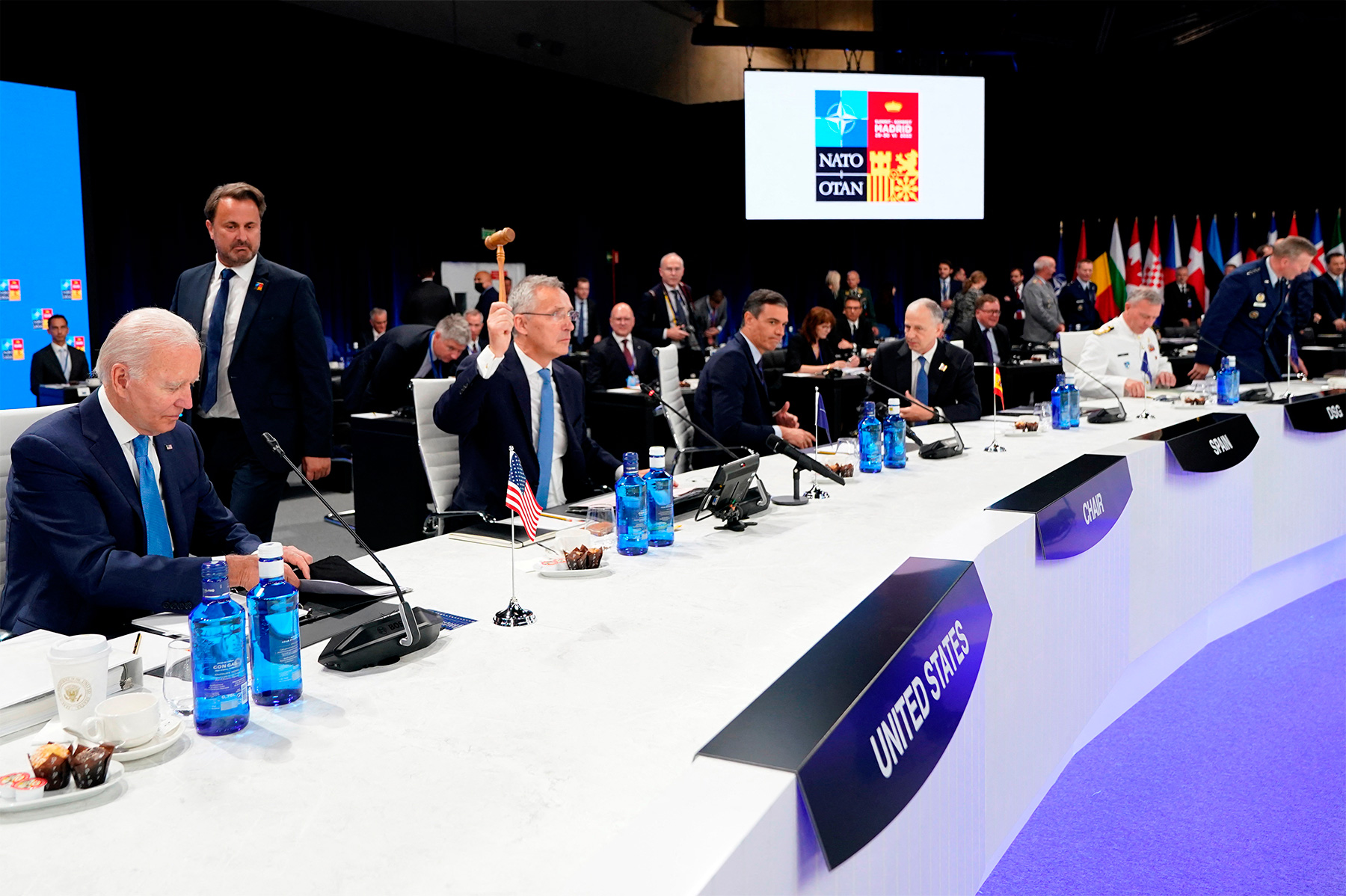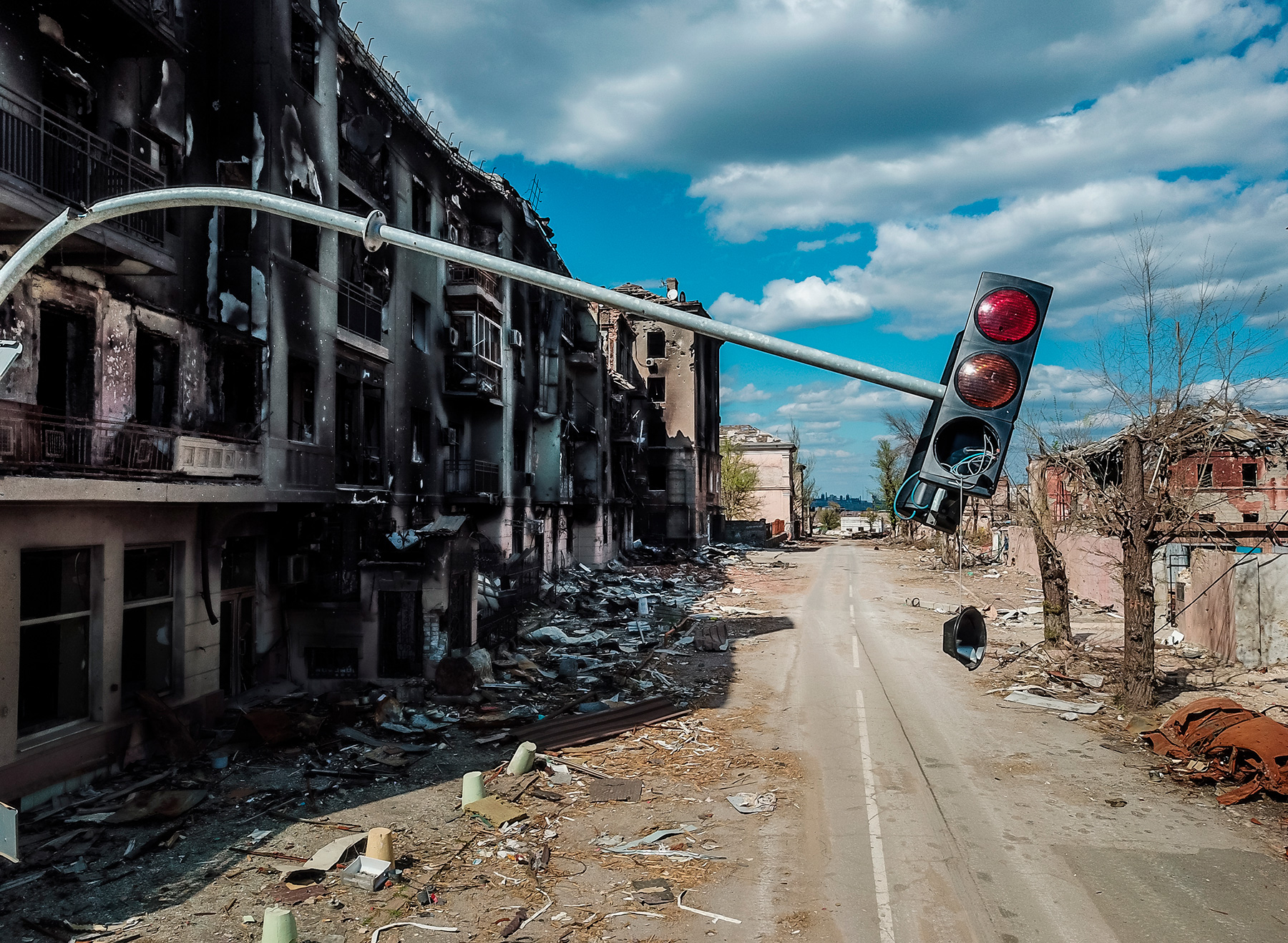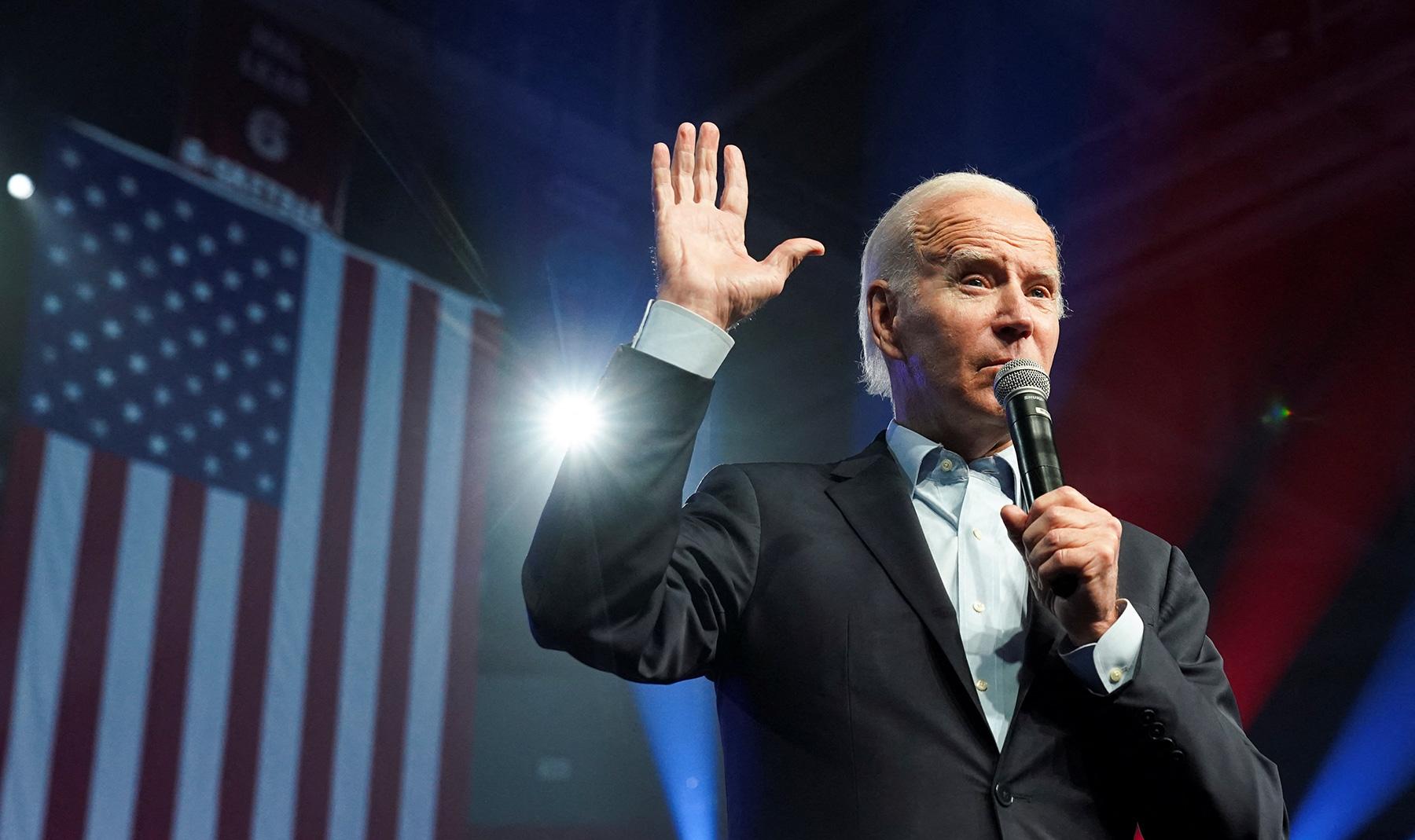In 1989, the “short 20th century” ended with the “end of history”—the victory of the Western capitalist world over the Soviet socialist project. At that time, there was not a single country or community left in the world that would offer a global alternative in the form of its own view on the organisation of the economy, society and political system. The Soviet bloc dissolved itself. A significant part of it quickly integrated into NATO and the European Union.
Other major world players began to organically integrate into the Western-centric world system long before the end of the Cold War. China retained a high level of sovereignty in terms of its internal structure, but quickly integrated into the capitalist economy, actively trading with the US, the EU and the rest of the world. At the same time, Beijing avoided promoting the socialist project abroad. India did lay claim to its own global projects, although it also maintained a high level of originality in its political system, and still evaded joining blocs and alliances. Other more or less major players also remained within the rules of the game of the “liberal world order”, avoiding challenging it. Individual rebels, such as Iran and North Korea, did not pose much of a threat, although they raised concerns about their tenacity of resistance, their insistence on having nuclear programs, successful adaptation to sanctions, and, by and large, high resilience to potential military attack due to its high cost.
For a short period, it seemed that a global challenge could come from radical Islamism. But it also could not shake the existing order. The initially spectacular military campaigns of the US and its allies in Iraq and Afghanistan did little to democratise the Islamic world. There has also been no global change in the rules of the game. Moreover, the fight against radical Islamism even strengthened the identity of the Western world, which stands guard over the secular and rational system, opposed to the religious and affective one.
At first glance, Russia in the new world order has found its niche, which did not cause much concern in the West. In general, in the perception of Western partners, Russia was a fading, but at the same time quite predictable power.
In general, in the late 2000s and even in the 2010s one could speak of a fairly high degree of stability of the order that was established after the end of the Cold War. However, in 2022 it became finally clear that the “end of history” was over. And history continues in its usual course of world upheavals, the struggle for survival, fierce competition and rivalry.
Both the dogmatism of American foreign policy and the realism combined with it turned out to be critical for the short duration of the “end of history”. The mixture gave rise, on the one hand, to unsustainable adventures like the afore-mentioned democratisation of Afghanistan, and the rejection of the “canon”, expressed in double standards and the impudent promotion of one’s interests under good slogans, on the other. The first led to the consumption of resources and the undermining of faith in the omnipotence of the hegemon (the Afghan resistance managed to eject not only the “inefficient USSR”, but also the “efficient USA”, with all its allies). The second is to undermine confidence and growing scepticism on the part of other major players. Russia was the first, then China began to come to a similar understanding. In Russia, it began to emerge during the process of NATO’s advance to the east and transition into the post-Soviet space, perceived by Moscow as “hacking” the political systems of neighbouring states. In China, it took hold later, when Donald Trump unblinkingly launched an active attack on China in the form of a trade and sanctions war.
However, the responses of Moscow and Beijing turned out to be different. Russia slammed its fist on the table in 2014, and then completely turned the table, complete with all cards, chess and other board games, in 2022. China began to intensively prepare for a worst-case scenario, while not openly challenging the US. But even without such a challenge, China is perceived in Washington as a more dangerous and long-term adversary than Russia.
In 2022, the remnants of the past era of the “end of history” are finally gone. However, there was no return to the Cold War either. The motivation of Russian policy is connected mainly with security interests. It is not derived from ideology, although it includes components of the “Russian world” identity, as well as historical motives for countering Nazism. Russia does not offer a global ideological alternative comparable to liberalism. So far, China has not come up with such initiatives either.
In 1989, the “short 20th
century” ended with the “end of history”—the victory of the Western capitalist world over the Soviet socialist project. At that time, there was not a single country or community left in the world that would offer a global alternative in the form of its own view on the organisation of the economy, society and political system. The Soviet bloc dissolved itself. A significant part of it quickly integrated into NATO and the European Union.
Other major world players began to organically integrate into the Western-centric world system long before the end of the Cold War. China retained a high level of sovereignty in terms of its internal structure, but quickly integrated into the capitalist economy, actively trading with the US, the EU and the rest of the world. At the same time, Beijing avoided promoting the socialist project abroad. India did lay claim to its own global projects, although it also maintained a high level of originality in its political system, and still evaded joining blocs and alliances. Other more or less major players also remained within the rules of the game of the “liberal world order”, avoiding challenging it. Individual rebels, such as Iran and North Korea, did not pose much of a threat, although they raised concerns about their tenacity of resistance, their insistence on having nuclear programs, successful adaptation to sanctions, and, by and large, high resilience to potential military attack due to its high cost.
For a short period, it seemed that a global challenge could come from radical Islamism. But it also could not shake the existing order. The initially spectacular military campaigns of the US and its allies in Iraq and Afghanistan did little to democratise the Islamic world. There has also been no global change in the rules of the game. Moreover, the fight against radical Islamism even strengthened the identity of the Western world, which stands guard over the secular and rational system, opposed to the religious and affective one.
At first glance, Russia in the new world order has found its niche, which did not cause much concern in the West. The country has become a peripheral economy specialising in the supply of raw materials. Its market was happily mastered by global Western companies. Its upper bourgeoisie have become part of the global elite, the “global Russians”. Local industry has either degraded or been integrated into global chains. Human capital was gradually shrinking. In general, in the perception of Western partners, Russia was a fading, but at the same time quite predictable power. Its episodic outbursts of indignation over the bombing of Yugoslavia, the war in Iraq, or revolutions in the post-Soviet space were somehow smoothed out and not considered a big problem. It was possible, for the sake of order, to criticise Moscow for its “legacy of authoritarianism” or for violating human rights; to periodically lecture, praise it for its cultural closeness to the West, but at the same time make it clear that there would be no deep integration. Timid attempts by Russian business to enter the capital of Opel, Airbus or acquire assets in other areas, that is, to achieve slightly more equal and interdependent economic relations, were unsuccessful. Moscow was also very directly and frankly made to understand that its concerns about the Western military presence in the post-Soviet space have no legitimate basis and would be ignored.
In general, in the late 2000s and even in the 2010s one could speak of a fairly high degree of stability of the order that was established after the end of the Cold War. However, in 2022 it became finally clear that the “end of history” was over. And history continues in its usual course of world upheavals, the struggle for survival, fierce competition and rivalry.
In order to adequately assess the new stage, it is important to understand the meaning of the idea of “the end of history”. Its identification with the well-known concept of Francis Fukuyama provides only a superficial understanding. However, it has much deeper normative and political-philosophical roots. They can be found primarily in two modernist political theories, liberalism and socialism. Both are based on a belief in the limitless power and normative value of the human mind. It is the mind that gives a person the opportunity to take control of the forces of nature, as well as the elemental forces, and also affects the dark sides of human nature and society. With the help of reason, progress can be made in various fields, achieving the emancipation and liberation of a man from prejudices, traditions and other unreasonable biases. With the help of reason, it is possible to put an end to arbitrariness, violence and anarchy, including the problem of war as an irrational action that causes disaster and destruction. Accordingly, modernist theories allowed for the achievement of a certain ideal, in which society would work like well-oiled and rationally built clockwork, revealing the creative nature of man and eliminating its irrational and destructive aspects. The achievement of such an ideal was conceived as the “end of history”, or at least its transition to a new quality.
In the Soviet Union, the idea of the “end of history” was clearly expressed by the orientation towards the achievement of communism, which, however, was constantly postponed. In the West, the idea of the “end of history” has also received a number of conceptual features. These include democracy (polyarchy) and the market economy as examples of the political and economic organisation of society. In international relations, the idea of a rational order also had deep roots. Among them, for example, is the idea of the international community, which should, by joint efforts, tame the ambitions of any aggressor; the idea of “democratic peace”, implying that democracies are not prone to war because they are accountable to their societies; the idea of economic interdependence as a remedy for war (potential economic losses make war unprofitable), etc. After the end of the Cold War, many of these ideas were cemented by the statement that there was only one superpower left in the world. It would ensure general security, organise an international security community around itself, pull down the aggressors, and so on. The sudden formation of a unipolar world order after the end of the Cold War coincided with the “third wave of democratisation” and economic globalisation, that is, signs of the “end of history” existed on several levels at once, giving fair grounds to believe that it had finally arrived.
However, in the West itself (primarily in the United States) there were enough sceptics about rationalist ideologies. Realist Hans Morgenthau is known for his work Politics Among Nations. However, as early as in 1946, his earlier book, Scientific Man vs Power Politics, came out in which he severely criticized the very idea of the rational control of anarchic international relations. The human mind is too limited to challenge human nature and the course of history. The rational construction of international relations is a dangerous illusion. There is no place for a rational engineer in international politics. His place should be taken by a statesman who is aware of the limitations of the rational notions and grounded in common sense. The idea of immutability of the destructive features of a person was also postulated by Reinhold Niebuhr, the theologian and philosopher, who contributed a lot to the formation of the philosophical foundations of realism. The dark sides of human nature are multiplied by society and the state. The destructive potential of a human group is much stronger than that of an individual. Anarchy in the relations of states is much more dangerous than anarchy in the relations of individuals. Neorealism subsequently left questions of normative political theory as a peripheral topic. Neorealists are already interested in other things—the influence of the distribution of power between the great powers on the stability of the world order, as well as its power parameters. Meanwhile, modern international experts forget that realism is a conservative political theory that has grown up in opposition to rationalistic liberalism and socialism.
In the US, liberalism and realism have coexisted for decades. The first performs an ideological and doctrinal role. The second, as it was, operates behind the scenes, compensating ideological patterns with pragmatism and common sense. Hence the so-often criticized “policy of double standards” of the United States. In the USSR, under the concrete slabs of socialist ideology, there was also its own version of realism. It has not been reflected upon to the extent that it could be done in the USA. But latently it developed in the environment of academic science, diplomacy and intelligence. The existence of this layer (Yevgeny Primakov later became its icon) allowed Russia to quickly acquire a pragmatic foundation for its foreign policy after several years of idealism in the late 80s and early 90s. By the 2000s, Russian foreign policy finally took a realistic footing. Unlike the United States, Moscow did not have and did not want to have any ideological system of foreign policy, having played enough ideological games in the Soviet period. In the United States and in the West as a whole, the ideological component has been preserved, having become even more established in its significance against the background of the victory in the Cold War.
Meanwhile, there is a trap in the dualism of ideology and pragmatics. The fact is that ideology can be not only a screen for pragmatic realists, but also an object of faith for many diplomats, scholars, journalists, military men, businessmen and other representatives of the foreign policy elite. Ideology is capable of being the very self-sufficient value that, in Max Weber’s words, will make social action value-rational rather than goal-oriented. The approach to foreign policy in terms of democratisation or the degree of involvement in the global market economy is an example of the influence of ideology on the perception of foreign policy and the setting of foreign policy objectives. The attempt to democratise Afghanistan can be viewed with scepticism, but there were a considerable number of sincere supporters of the idea in the United States.
Both the dogmatism of American foreign policy and the realism combined with it turned out to be critical for the short duration of the “end of history”. The mixture gave rise, on the one hand, to unsustainable adventures like the afore-mentioned democratisation of Afghanistan, and the rejection of the “canon”, expressed in double standards and the impudent promotion of one’s interests under good slogans, on the other. The first led to the consumption of resources and the undermining of faith in the omnipotence of the hegemon (the Afghan resistance managed to eject not only the “inefficient USSR”, but also the “efficient USA”, with all its allies). The second is to undermine confidence and growing scepticism on the part of other major players. Russia was the first, then China began to come to a similar understanding. In Russia, it began to emerge during the process of NATO’s advance to the east and transition into the post-Soviet space, perceived by Moscow as “hacking” the political systems of neighbouring states. In China, it took hold later, when Donald Trump unblinkingly launched an active attack on China in the form of a trade and sanctions war.
However, the responses of Moscow and Beijing turned out to be different. Russia slammed its fist on the table in 2014, and then completely turned the table, complete with all cards, chess and other board games, in 2022. China began to intensively prepare for a worst-case scenario, while not openly challenging the US. But even without such a challenge, China is perceived in Washington as a more dangerous and long-term adversary than Russia.
In 2022, the remnants of the past era of the “end of history” are finally gone. However, there was no return to the Cold War either. The motivation of Russian policy is connected mainly with security interests. It is not derived from ideology, although it includes components of the “Russian world” identity, as well as historical motives for countering Nazism. Russia does not offer a global ideological alternative comparable to liberalism. So far, China has not come up with such initiatives either.
The end of the “end of history” is notable for several other specific reasons. First, a fairly large power took the risk of suddenly abandoning the benefits of “global peace”. Historians will argue about whether Moscow expected such harsh sanctions and such a quick exit of hundreds of foreign companies from Russia. However, it is obvious that Russia is vigorously adapting to the new realities and is in no hurry to “admit fault” in order to return to the comfortable “cruise ship” of Western-centric globalisation. Second, Western countries have gone about a stringent “cleansing” of Russian assets abroad. It turns out that Western jurisdictions have suddenly ceased to be a “safe haven” in which the rule of law prevails.
They are now dominated by politics. Russia remains the only harbour where Russians can return relatively calmly. Stereotypes about the “stability and security” of the West are being broken. Of course, similar purges of other assets are unlikely to start there. But looking at the Russians, investors are wondering if it was worth hedging the risks? Third, it turns out that in the West, one can face not only the cleansing of assets, but also open discrimination based on nationality. Thousands of Russians fleeing the “bloody regime” have encountered only rejection and contempt. Others, trying to prove that they are more prolific Russophobes than their host partners, are running ahead of the anti-Russian propaganda. However, this does not guarantee that stubborn dogmatists will not send them back to Russia, considering them unsuitable for one or another parameter.
The conflict between Russia and the West is likely to drag on for decades, regardless of how and along exactly what lines the conflict in Ukraine ends. In Europe, Russia will play the role of North Korea, but at the same time it will have much greater potential. Whether Ukraine has enough strength, will and resources to become a European South Korea is a big question. The conflict between Russia and the West will strengthen the role of China as an alternative financial centre and source of modernisation. The rise of China will only accelerate its growing rivalry with the United States and its allies. “The End of History” ended with a return to its usual course. One of the usual patterns of its course is the breakdown of the world order as a result of large-scale conflicts between centres of power. There is a hope, that another such transit will not be the last for humanity, given the risks of an open military clash between the great powers, followed by an escalation into a full-scale nuclear conflict.
First published in the Valdai Discussion Club.








